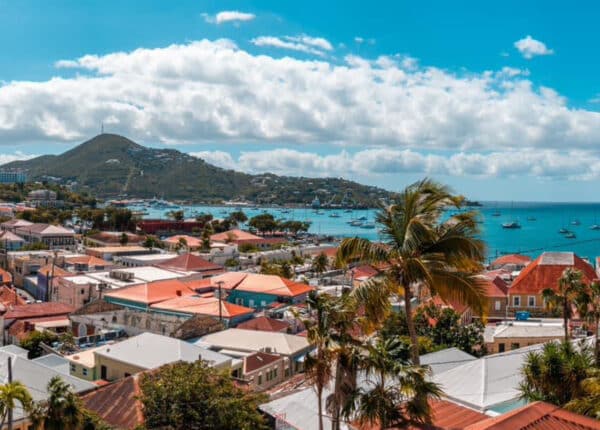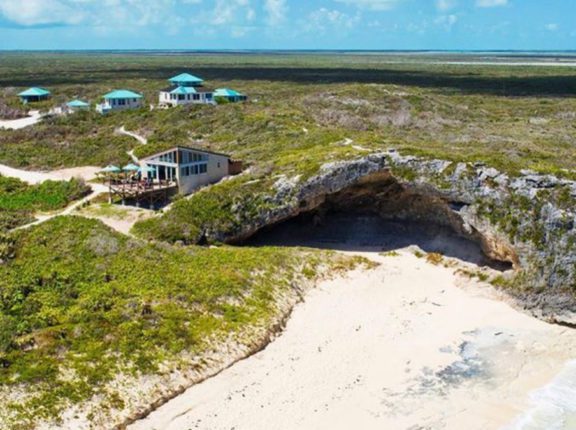Supporting Caribbean Entrepreneurs, Sustaining the Regional Economy
By Irene Arias
Op-Ed Contributor
Small and medium sized companies are the backbone of Latin America’s economy. They represent more than 90 percent of all enterprises in the region, generating over half of all jobs and a quarter of the region’s gross domestic product. They are essential to economic growth, yet their success is often blocked by one key obstacle: lack of credit. Nearly a third of companies in the region identified lack of credit as a major constraint, according to recent surveys.
Take the case of Sonia Arias, who owns a small textile business in Medellin, Colombia. When she opened her business seven years ago, she took an informal loan that left her with sky-high interest rates and little cash to reinvest. “When I was paying these loans,” she said, “it felt like we were being hit with a stick.”
A little-known financial tool is having a big impact on Arias and thousands of other entrepreneurs who have had trouble getting a loan because they didn’t have the right type of collateral. You see, collateral provides the foundation for access to credit. Latin American and Caribbean banks generally prefer using land and buildings as guarantees for loans. However, in many emerging markets more than three quarters of a businesses’ capital is typically in movable assets such as machinery, equipment, livestock or crops. Secured transactions laws and electronic collateral registries may seem like obscure financial tools, but they are helping transform the credit culture by allowing borrowers who don’t own land or buildings to use other types of collateral to guarantee a loan.
As bankers from across the region gather this week in Medellin for the Federation of Latin American Banks’(FELABAN) annual assembly, collateral registries deserve to be at the forefront of any discussion on improving access to credit.
With the launch of a new registry in Colombia, entrepreneurs like Arias are now leveraging assets as small as a sewing machine to receive a loan. The results have been staggering: So far there have been over one million registrations valued at more than $US 93 billion since the registry went live in March of this year.
While only 10 percent of these registrations represent new credits, the potential to increase financial access is clear. More than 100 financial institutions, including some of the largest banks in the country, are already participating in the registry as lenders. The legislative reforms were made possible through a three year partnership between the Colombian Government, the Association of Chambers of Commerce, and the International Finance Corporation (IFC), a member of the World Bank Group and the largest global development institution focused exclusively on the private sector.
The impact of the registry has been wide reaching. In the World Bank Group’s Doing Business 2015 report, which measures regulations affecting local firms in 189 economies, Colombia for the first time clinched the top spot in Latin America and the Caribbean partly because of the implementation of the new registry.
IFC has worked with partners in more than 30 countries to establish the legal and institutional frameworks that enable borrowers to use movable assets to guarantee loans. Collateral registries are breaking down barriers to lending, especially for women and younger entrepreneurs who often do not have credit histories or banking relationships.
The impact is significant.
According to a World Bank survey in 73 countries, registry reform has increased access to bank finance by almost 8 percentage points and access to loans by 7 percentage points as well as reduced the cost of credit by 3 percent on average. These are sizeable effects considering that in the sample, about 60 percent of firms had access to finance and 47 percent had a loan.
Impressive gains are being made in countries across Latin America and the Caribbean. Mexico has implemented an electronic movable collateral registry and 97 percent of its registrations are for loans granted to small and medium enterprises. A new secured transactions law came into effect in Costa Rica this May and the country expects an electronic moveable collateral registry to be online within a year. IFC is working in the Dominican Republic, Trinidad and Tobago, Belize and St. Lucia on similar initiatives.
For Arias, the registry represents an unprecedented opportunity. She received a $15,000 loan which has helped grow her business from three to eight employees. She also plans to buy the location she currently rents for her small factory and acquire more embroidery machines. “In five years, people are not going to refer to my company as a micro-enterprise,” she said. “I’m confident we are going to grow quickly.”
That is the kind of entrepreneurial drive that is crucial to sustainable economic growth in Latin America and the Caribbean.
Irene Arias is the IFC Director for Latin America and the Caribbean.
Note: the opinions expressed in Caribbean Journal Op-Eds are those of the author and do not necessarily reflect the views of the Caribbean Journal.







